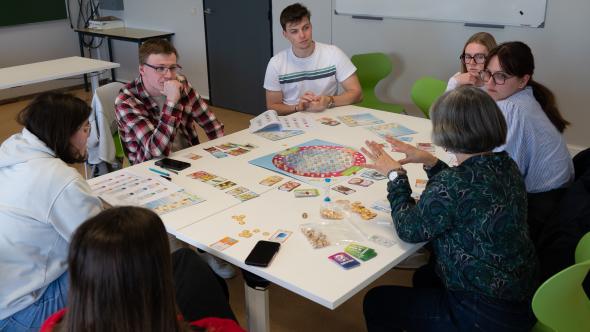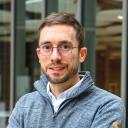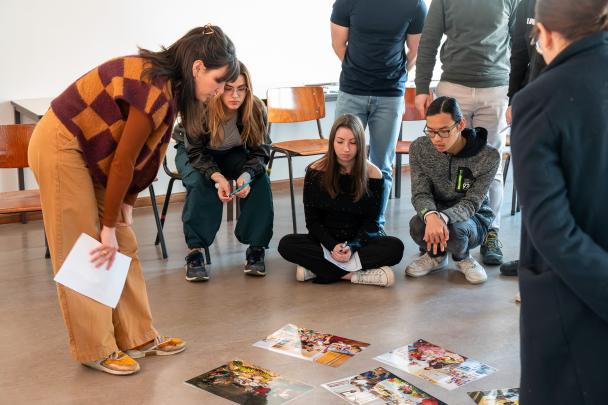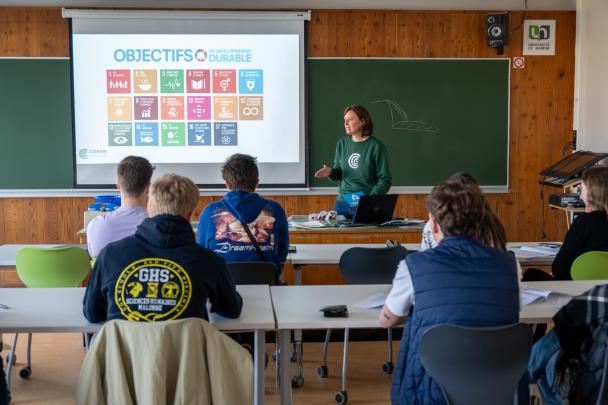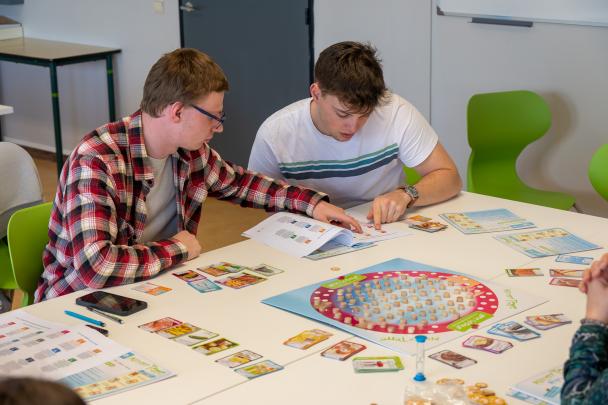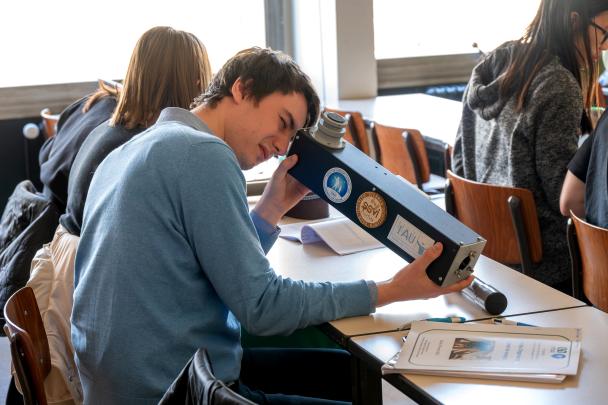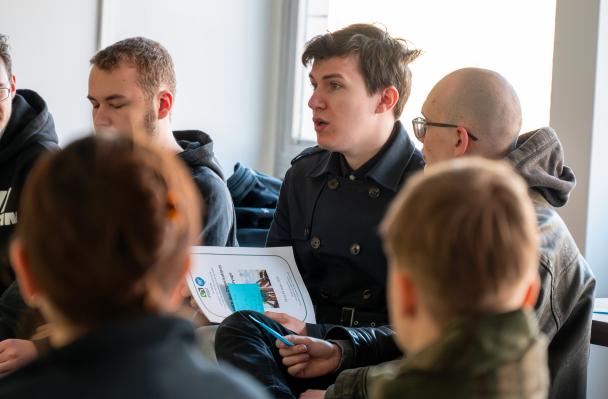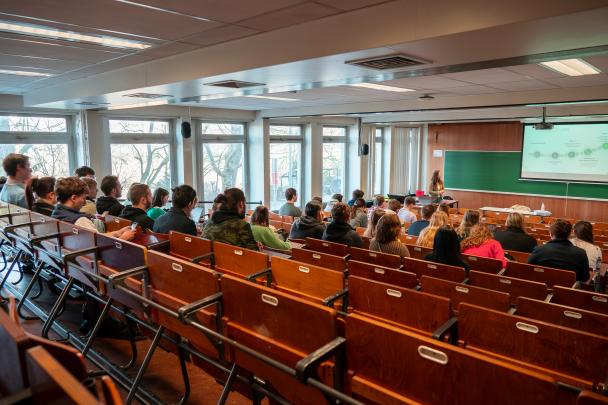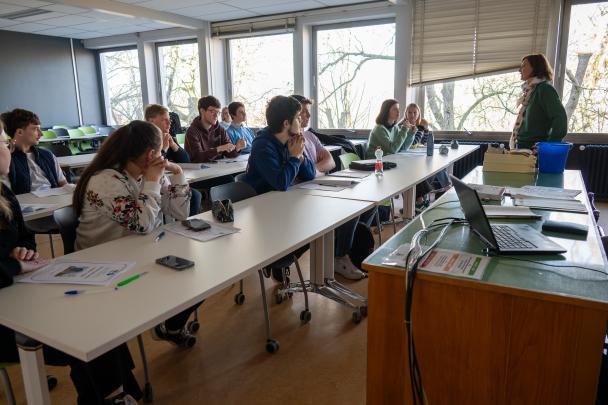Raise awareness among future compulsory school teachers of the need to integrate sustainable development objectives into their courses
The university has a duty to set an example in terms of sustainable development, in all three of its dimensions: economic, social and environmental. Sustainable "in form" through the way it manages its infrastructures and assets, and sustainable "in substance" through its commitment to research and teaching activities, in order to actively contribute to the environmental transition. All in line with the United Nations' Sustainable Development Goals (SDGs)
.
